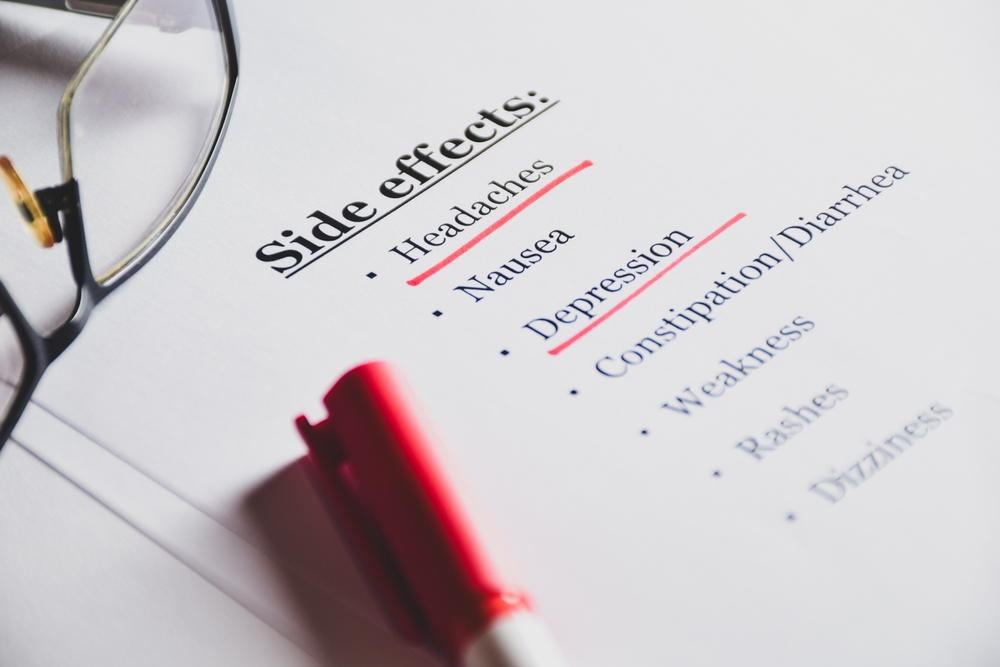Perimenopause, the transitional phase leading up to menopause, is a natural part of aging for women. This period can begin several years before menopause, often in a woman’s 40s, but sometimes as early as the mid-30s. During perimenopause, the body undergoes significant hormonal changes that can lead to a variety of symptoms. Understanding these symptoms is crucial for managing them effectively and maintaining quality of life during this transitional phase. At May-Grant OB/GYN in Lancaster, PA, our team of experienced providers is here to guide you through perimenopause with expert care and personalized support.
What is Perimenopause?
Perimenopause, also known as the menopausal transition, is the time leading up to menopause when a woman’s ovaries gradually produce less estrogen. This phase ends when the ovaries stop releasing eggs, and a woman has gone 12 months without a menstrual period, marking the onset of menopause. The duration of perimenopause varies from woman to woman, typically lasting between four to ten years.
Common Symptoms of Perimenopause
The symptoms of perimenopause can vary widely in their type, intensity, and duration. Understanding these symptoms can help you anticipate changes in your body and seek appropriate care when needed.
Irregular Periods
One of the hallmark symptoms of perimenopause is changes in the menstrual cycle. As hormone levels fluctuate, periods may become irregular. You might experience shorter or longer cycles, heavier or lighter bleeding, or even skipped periods. These changes are due to the ovaries producing less estrogen and progesterone, leading to an imbalance in the hormones that regulate menstruation.
Hot Flashes and Night Sweats
Hot flashes are sudden feelings of warmth, often accompanied by sweating and a flushed face, and are a common symptom of perimenopause. They can vary in intensity and duration, with some women experiencing mild warmth while others endure more intense heat. Night sweats, hot flashes that occur during sleep, can disrupt your rest and lead to fatigue.
Mood Changes
Mood swings, irritability, and increased anxiety or depression can also be symptoms of perimenopause. These mood changes are linked to fluctuating hormone levels, particularly estrogen, which can affect neurotransmitters in the brain that regulate mood. Additionally, the physical symptoms of perimenopause, such as sleep disturbances and hot flashes, can contribute to emotional distress.
Sleep Disturbances
Many women experience sleep problems during perimenopause. These can be due to night sweats, which disrupt sleep, or insomnia, which becomes more common as hormone levels fluctuate. Poor sleep can lead to daytime fatigue, difficulty concentrating, and increased irritability, further impacting quality of life.
Vaginal Dryness and Discomfort
As estrogen levels decline, the vaginal tissues may become thinner, drier, and less elastic, leading to discomfort during intercourse and an increased risk of urinary tract infections. Vaginal dryness can also cause itching, burning, and irritation, making it important to address these symptoms with your healthcare provider.
Decreased Libido
A decrease in sexual desire is another common symptom of perimenopause. Hormonal changes, along with physical symptoms like vaginal dryness and mood fluctuations, can reduce interest in sexual activity. However, this symptom varies widely among women, and some may not experience any change in libido.
Weight Gain and Slowed Metabolism
During perimenopause, many women notice weight gain, particularly around the abdomen. This can be attributed to a slower metabolism, changes in body composition, and hormonal shifts that affect how the body stores fat. While this weight gain can be frustrating, maintaining a healthy diet and regular exercise routine can help manage these changes.
Changes in Hair and Skin
Hormonal fluctuations during perimenopause can also affect your hair and skin. Some women experience thinning hair or hair loss, while others may notice their skin becoming drier and less elastic. These changes are primarily due to decreased estrogen levels, which play a role in maintaining skin and hair health.
Managing Perimenopause Symptoms
While perimenopause is a natural phase of life, its symptoms can be challenging. Fortunately, there are several strategies you can use to manage these symptoms effectively and improve your quality of life.
Lifestyle Changes
Making certain lifestyle changes can significantly alleviate perimenopausal symptoms. Regular exercise helps manage weight, improves mood, and enhances sleep quality. A balanced diet rich in fruits, vegetables, whole grains, and lean proteins can support overall health and mitigate symptoms like weight gain and mood swings.
Additionally, stress management techniques such as yoga, meditation, or deep breathing exercises can help reduce anxiety and improve emotional well-being. Ensuring you get enough rest and maintaining a consistent sleep schedule can also help manage sleep disturbances.
Hormone Therapy
Hormone therapy (HT) can be an effective treatment for managing more severe perimenopausal symptoms. HT involves taking estrogen, progesterone, or a combination of both to help balance hormone levels and reduce symptoms such as hot flashes, vaginal dryness, and mood changes. However, hormone therapy is not suitable for everyone, so it’s important to discuss the risks and benefits with your healthcare provider at May-Grant OB/GYN.
Non-Hormonal Treatments
For women who cannot or prefer not to use hormone therapy, there are non-hormonal treatments available. These may include medications to manage specific symptoms, such as antidepressants for mood swings or selective serotonin reuptake inhibitors (SSRIs) to reduce hot flashes. Additionally, vaginal moisturizers and lubricants can alleviate vaginal dryness and discomfort during intercourse.
Herbal Supplements and Alternative Therapies
Some women find relief from perimenopausal symptoms through herbal supplements and alternative therapies. Black cohosh, red clover, and soy isoflavones are popular herbal remedies that may help reduce hot flashes and improve mood. However, it is essential to consult with your healthcare provider before starting any supplements, as they can interact with medications and may not be appropriate for everyone.
Regular Check-Ups and Monitoring
Regular check-ups with your healthcare provider are crucial during perimenopause. These appointments allow for monitoring of symptoms, discussion of treatment options, and screening for conditions such as osteoporosis and cardiovascular disease, which can become more common as estrogen levels decline. Your provider at May-Grant OB/GYN can help you navigate this transition with personalized care and advice.
Navigating Perimenopause with Confidence
Perimenopause is a significant transition that brings various physical and emotional changes. While the symptoms can be challenging, understanding what to expect and how to manage them can empower you to navigate this phase with confidence. At May-Grant OB/GYN in Lancaster, PA, our providers are committed to supporting you through every stage of perimenopause, offering compassionate care and expert guidance tailored to your unique needs. By taking proactive steps and working closely with your healthcare provider, you can manage perimenopause symptoms effectively and maintain a high quality of life.
Sources:
- Freeman, E. W. (2010). The role of anxiety and hot flashes in menopausal women. Menopause.
- Santoro, N., Epperson, C. N., & Mathews, S. B. (2015). Menopausal symptoms and their management. Endocrinology and Metabolism Clinics.
- Avis, N. E., Crawford, S. L., & Greendale, G. (2015). Duration of menopausal vasomotor symptoms over the menopause transition. JAMA Internal Medicine.








